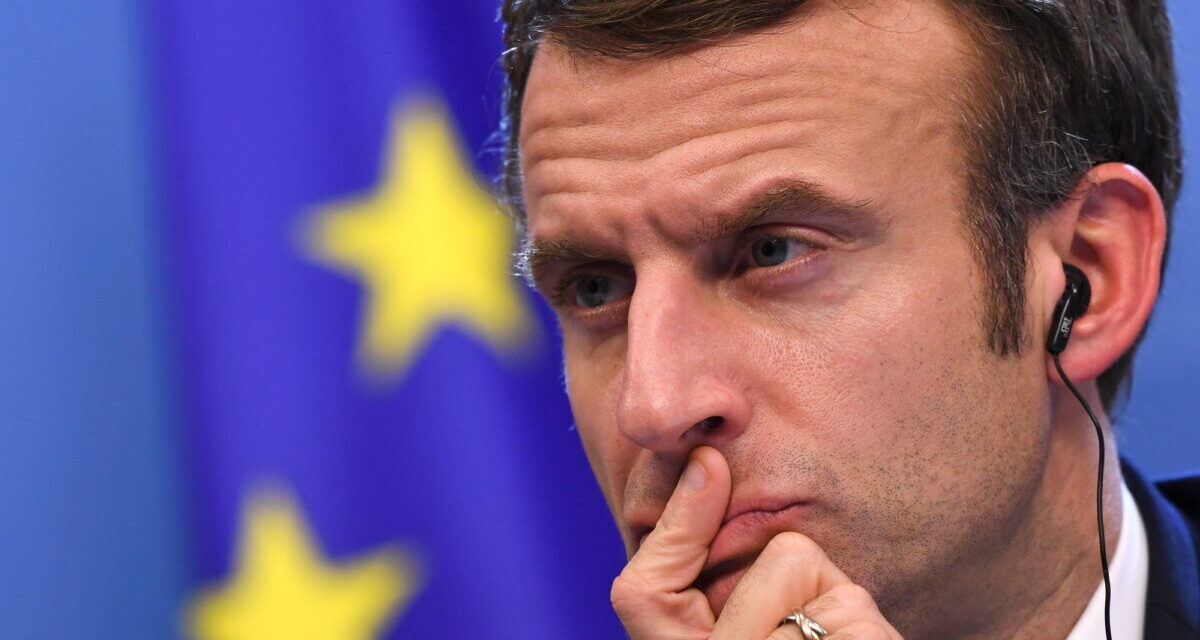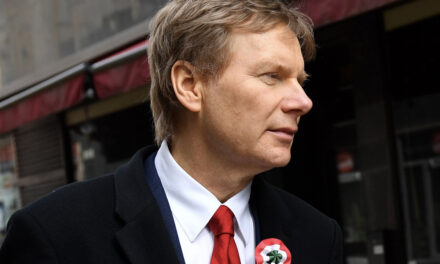The French head of state does not want to resign, he does not plan early presidential elections, he considers the demands for this to be "political fiction".
As a result of the early elections in June 2024, 3 main political blocs emerged in the French National Assembly: Macron's liberal party alliance (Ensemble), the right-wing National Consolidation (RN), and the left-wing New People's Front (NFP). None of the blocs won an absolute majority, which made it difficult to form a stable government.
France's budget deficit as a percentage of GDP rose to 7 percent, while public debt exceeded 110 percent of GDP. Because of these, the European Commission (EC) initiated an excessive deficit procedure against the country.
The Barnier government planned austerity measures such as restructuring the pension system, tax increases, and restructuring agricultural subsidies. These reforms caused social discontent. The new cabinet was unable to reach a suitable compromise with the opposition in order to pass the budget. The RN and the NFP demanded the withdrawal of pension increases and energy taxes, which the government could not accept due to Brussels' expectations.
Referring to Article 49 of the constitution, the government tried to pass the budget without a parliamentary vote, which further increased dissatisfaction, the reforms partly stemmed from compliance with the EU's expectations, which were aimed, for example, at reducing the budget deficit and promoting the capital market union. However, these steps did not enjoy the support of French society.
Continuous strikes and demonstrations by public sector workers, agricultural producers and other interest groups further increased political tension.
What conditions apply to the adoption of the budget?
According to Article 49 of the French Constitution, the Prime Minister, after consultation with the Council of Ministers, may raise the issue of the government's responsibility for its program or a general political statement before the National Assembly. The National Assembly can hold the government accountable by voting on a no-confidence motion. The motion can only be successfully presented if it is signed by at least one tenth of the members of the National Assembly. Voting can take place no earlier than 48 hours after the presentation. Only the votes cast in favor of the no-confidence motion are counted, which can only be passed with a majority vote of the members of the National Assembly.
After discussion in the Council of Ministers, the Prime Minister may raise the question of the government's responsibility before the National Assembly in connection with the voting of a bill on the financing of the budget or social security. In this case, the text is considered adopted, unless the no-confidence motion submitted within 48 hours thereafter is voted according to the conditions of the previous paragraph. In addition, the prime minister can initiate the re-admission of another bill or bill during the session, or ask the Senate to approve a general political statement.
The number of votes required to submit and pass a motion of no confidence
According to Article 49 of the French constitution, the National Assembly questions the government's responsibility by voting on a motion of no confidence. Such a motion can only be accepted if it is signed by at least one-tenth of the members of the National Assembly.
An absolute majority of the members of the National Assembly is required for the adoption of the no-confidence motion, which means 289 votes in the 577-member lower house.
The motion of no confidence initiated by Marine Le Pen's RN received 331 votes. In the previous election, three large blocs emerged, of which two opposition parties both submitted motions of no confidence: the left-wing NFP coalition and the right-wing RN of Le Pen.
The resignation of the prime minister and the appointment of the new prime minister, when are the next parliamentary elections, could Macron fail?
According to Article 8 of the French constitution, the president appoints the prime minister. The president relieves the prime minister of his office if he submits the resignation of the government. He appoints and relieves the other members of the government on the recommendation of the Prime Minister.
In the French legal system, there is no specific constitutional or statutory provision that would regulate in detail the operation of the caretaker government in such situations. However, based on customary law established in practice, the members of the outgoing government remain in office in an acting capacity until the formation of the new government. This ensures the smooth functioning of the state administration and the continuity of power.
In July 2024, the resignation of Prime Minister Gabriel Attal and his government was accepted by President Emmanuel Macron, but the outgoing heads of ministries remained in place for a few weeks in an acting capacity. The president appoints the new prime minister based on Article 8 of the constitution. The constitution does not set a specific deadline for the appointment, but it usually happens quickly in the interests of political stability.
Following Élisabeth Borne's resignation in January 2024, President Emmanuel Macron appointed her successor the same day. The new prime minister proposes the ministers, who are appointed by the president. The constitution does not require parliamentary approval for the appointment of the prime minister or the government, so the National Assembly has no formal role in this process.
Article 12 of the French constitution states that "there is no possibility of repeated dissolution in the year following the elections" - this has already happened once this year, so it is only possible next year.
According to the constitutional rules, the president can dissolve the National Assembly after consulting the prime minister and the presidents of the two houses of the Parliament. General elections must be held within at least 20 and at most 40 days after the dissolution. By law, the National Assembly convenes on the second Thursday following its election. If this meeting takes place outside the period prescribed for regular sessions, the session legally lasts for 15 days.
It is not possible to dissolve again in the year following the elections.
Emmanuel Macron's current political situation is unstable, he is not in an easy situation, but there is no realistic chance of his fall.
The biggest problem is that France does not have an approved 2025 budget. The necessary parliamentary majority for its adoption must be organized either from the NFP or the RN camp. In addition, a traditional wave of strikes can be expected in France, with trade unions threatening to strike in several areas, from the transport sector to education.
In any case, according to Macron, he does not wish to resign, he does not plan early presidential elections, he considers these demands to be "political fiction".
It is an interesting development that Marine Le Pen, the president of the RN, does not demand Macron's resignation recently, rather she says that they would support a new prime minister if he could put together a budget that is "suitable for everyone".
Cover image: French President Emmanuel Macron
Source: MTI/EPA/AFP pool/John Thys













